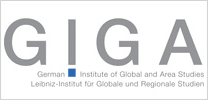“Ideological Change and Regime Legitimacy in China” Research Project at GIGA Hamburg
In the eyes of most contemporary witnesses, the fall of the Berlin Wall and the collapse of the Soviet Union signaled the end of ideology in general, and of socialism and Marxism in particular. At least in the case of China, this was a hasty assumption. Two decades later we are observing a reemphasis on party ideology in the People’s Republic. Ideological adaptation and innovation have become crucial measures for relegitimizing the rule of the Chinese Communist Party (CCP). The objective of the “Ideological Change and Regime Legitimacy” research project is to analyze the changes in political ideology in China and their implications for the legitimacy of the party regime.
Based on discourse analytical methods and interviews with political and intellectual elites in China, the project explores (a) how ideological change is organized in institutional, personal and financial terms; (b) which ideological innovations have been made since the 1990s; (c) which positive and negative lessons have been drawn from international experiences; (d) which impacts on regime legitimacy and stability can be detected; and (e) which implications these factors have for future institutional change and political reform in China.
“Ideological Change and Regime Legitimacy in China” is one of four research projects within the “Governance in China” research network, a collaboration between the GIGA and the universities of Würzburg, Duisburg-Essen, Tübingen and Trier. The network’s objective is to explore the adaptability and innovativeness of institutions, procedures, and fields of governance in China and to contribute to current political and academic debates through regular publications. The research network also promotes international academic exchange through the participation of its members in international conferences and its international visiting scholar program.


